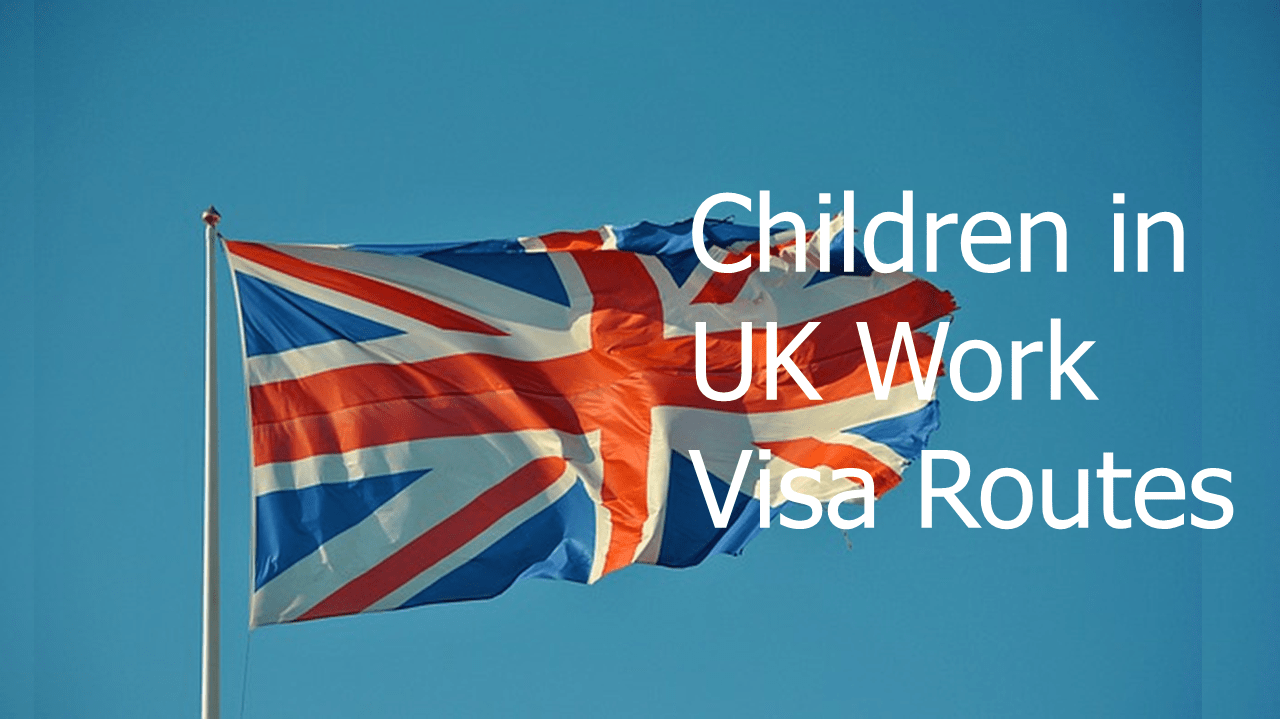Children in UK Work Visa Routes
John is a Skilled Worker in the UK. His son Stephen is 15 years old. He lives abroad and wants to join John in the UK as a dependent child of a Skilled Worker. Stephen’s mother, Gwen, separated from John when Stephen was only 5 years old. After separation, Stephen continued living with his father. Although they are still officially married, Gwen has not seen Stephen for many years. She did not play any role in the child’s upbringing.
Will Stephen encounter any challenges when making such an application?
This topic involves discussion of many elements. For your ease of reference, I have divided this article into two parts. This is part 2 of 2. You can read part one HERE.
What is NOT Sole Parental Responsibility
- sole parental responsibility is not the same as legal custody
- significant or even exclusive financial provision for a child does not in itself demonstrate sole parental responsibility
- sole parental responsibility can be recent or long-standing. However, the Home Office will scrutinise any recent change of arrangements to make sure this is genuine and not an attempt to circumvent immigration control.
Care of Other Adults

The Home recognises that it is unrealistic for a child to have contact with no other adult other than the parent exercising sole responsibility. They do accept that the child will have contact with other adults, including relatives, and that these are likely to include some element of care towards the child. For example, John’s relatives could have taken Stephen to and from school.
Also, actions of this kind that include looking after the child’s welfare may be shared with others who are not parents, for example, relatives or friends, who are available in a practical sense. However, John will need to prove that he was the one with the overall responsibility for Stephen’s welfare.
In other words, the Home Office will not be considering whether John has day-to-day responsibility for Stephen. They will be assessing if John has continuing sole control and direction of the child’s upbringing, including making all the important decisions in his life.
The burden of proof is on John. He will need to provide satisfactory evidence. Sometimes, the Home Office may even decide to interview John to establish whether they have sole responsibility for the child. Also, they may want to talk to Gwen to check per perspective. However, John will need to consent to this.
Documents Proving Sole Responsibility
Let’s start with the obvious documents:
- Stephen’s birth certificate;
- Certificate of divorce or dissolution.
- Documents confirming that Stephen’s mother no longer has parental responsibility for Stephan (if they have such a document). This can be a death certificate, court order/letter, or another official document.
- Documents proving that John has and continues to make important decisions regarding Stephen’s upbringing of their child. This is most likely to be from Stephen’s school.
They may also consider submitting additional documents, such as:
- A statement from a relative or friend who was temporarily looking after Stephen where the person confirms that the person can no longer do this;
- Communication from John confirming when/how who made significant decisions in Stephen’s life. For example, when he applied to a certain school on Stephen’s behalf;
- Money transfer slips confirming that John has been fully supporting Stephen;
- Letters from documents, social carers or other people who were involved in Stephen’s life;
- proof of continued contact such as records of visits (plane tickets), print-outs of messages from Facebook, WhatsApp, etc;
- a statement from John explaining his involvement in Stephen’s life. If he did not make an application for Stephen to join him before, it would help if he explains why he didn’t bring Stephen to the UK earlier;
- pictures taken at important family events (e.g. birthdays, Christmas, Easter, New Year, trips abroad, etc).
Conclusion
You should be aware that the threshold for these types of cases is very high. It is not enough to confirm that the parties wish for the child to live in the UK with the UK-based parent.
The Home Office guidance states:
Where both parents are involved in the child’s upbringing, it will be rare for one parent to establish sole parental responsibility.
Proving that a UK-based parent has sole responsibility for a child is a significant challenge. Even in cases where a parent has a foreign court order confirming that a UK-based parent has legal custody of the child, the Home Office may still refuse the application.
The ultimate test will be whether John has provided enough evidence to prove that the refusal of Stephan’s application (and their subsequent separation as a result) will affect the child in a way that can be considered as ‘serious and compelling’ circumstances. Therefore, it is of crucial importance to gather a number of very strong objective pieces of evidence to prove the parent and the child meet the test.
Click HERE to read part 1 of this article.
